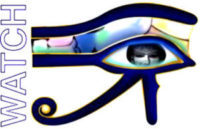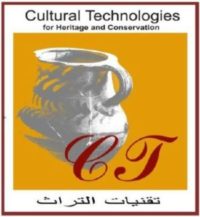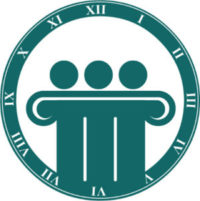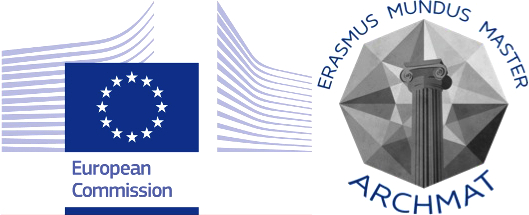STAC 8 Format
The conference
The overall conference programme will last five full days characterised by a multiplicity of activities dedicated and often directly involving all participants.
The conference will be articulated in plenary sessions and several parallel sessions that will take place during two and half days.
Plenary sessions will address and open interdisciplinary debate on the following key issues identified:
- UNITE4Heritage. A call to the international community for a comprehensive effort to protect Cultural Diversity under Attack: Protecting Heritage for Peace. Possible contribution from the stakeholders in coping with the huge effort required to protect cultural heritage;
- Climate changes, global warming, natural and anthropogenic disasters. Current experiences in progressive civil military cooperation for the protection of cultural heritage before and during catastrophic circumstances;
- Challenges and new trends in Cultural Heritage Management in the age of massive cultural tourism and the associated increased economic growth expectations. Possible scenarios for a win win reconciliation of the needs to protect cultural heritage with those of its sustainable promotion;
- Theory of Cultural Heritage Restoration and Conservation. 3D reconstruction as opposed to ruins and conservation … to what extent should it go? A philosophy to negotiate between sciences, culture and economics of cultural heritage when almost nothing is left after the major events.
Six parallel sessions will approach the following main topics:
-
Sciences applied to cultural heritage conservation and promotion;
-
Technologies and cultural heritage conservation and protection with an accent on user friendly IT and ICT;
-
Cultural Heritage Management analysis and concrete experience in transferring the concept into practice;
-
Policies in place for the involvement of NGOs and CSOs in the conservation and promotion of movable and immovable cultural heritage;
-
Legislation and implementation of international convention for the protection of movable and immovable cultural heritage
-
Economics and analysis of the multiple direct and indirect cultural, socio and economic impacts produced by major events on movable and immovable cultural heritage.
Trainings Workshops
To secure a concrete impact and their sustainability, the thematic training workshops organised alongside the conference are conceived as the first of a multiple folds, life long learning process and they will address a variety of topics including:
-
Training workshop on risk preparedness planning and management for the protection of endangered cultural heritage in critical areas.
An introductory multidisciplinary, inter-sectoral training will be delivered alongside the conference, focusing on risk preparedness planning for the mitigation, response and recovery of cultural heritage in case of major events. Dedicated primarily to up to a maximum of 30 participants representing key public and private, civil and military stakeholders.
This activity is particularly recommended for those professionals who can prove to be in a position to effectively replicate/ implement the lessons learned once back at home. Once back in their own countries the trainees will undergo further training cycle and they will be tutored by experts from several countries and various organisations.
-
Training workshop on geo-referenced data acquisition, photo-survey, image treatment and restitution, metric photo-mosaic for rapid cultural heritage recording.
-
Training workshop on Civil Military Cooperation for the protection of cultural heritage under ordinary conditions and in times emergency. International frameworks of reference, good practice and experience gained.
-
Introductory training workshop on sciences applied to heritage restoration, conservation and promotion ranging from data acquisition, interpretation and their relevance within the heritage progressive management cycle.
B2B meetings
How many times have you been at conferences and met participants who you heard presentations of and you wished you would have had the time to discuss your ideas and projects with but you ended up meeting them on a rush conversation often on corridors being split because you wanted to also attend other conference sessions of your main interest? Events that faced you and the other participants with time constraints that made it impossible for you to have enough time space to brainstorm or exchange sharing your interests and focus with the others on topics and/or eventual proactive cooperation?
The 8th STAC will offer this opportunity to the confirmed participants by circulating the list and short profile of each participant in advance and setting for meetings between participants at the conference. To this extent, a round of B2B meetings will also be organised during the conference for meetings between speakers, delegates, and participants who are interested to develop relations and explore space for possible cooperation, to present and discuss their projects or, to get support for new initiatives, etc. In this respect, given the particular character of the 8th edition of the STAC, a special space will be dedicated to a series of B2B sessions for meetings between registered participants who are engaged in the conservation, promotion and protection of cultural heritage under its several declinations. A space tailored for 1. Concerned national or/and local authorities; 2. Specialised CSOs and NGOs engaged in cultural heritage conservation, protection and promotion; 3. International organisations, 4. Scholars and researchers, 5. Private and public local and international donors or sponsor firms, to establish direct contacts, get advice and/or discuss perspective future collaborations.
Speakers on stage
Speakers’ on stage/s is a new space that will be organised within the conference especially dedicated to open short public presentations on demand with a maximum duration of fifteen minutes. This activity will be set to take place during the B2B meetings time.
All the registered participants to the conference can be ‘Speakers on stage’ on demand. Topics of the speeches must be submitted in the form of short yet exhaustive abstracts (max 300 words) to be selected by the Scientific Committee. A special attention will be given to studies and/or practices focusing on the protection of cultural heritage sites.
NOTES
It is important to highlight here that given the completely neutral and apolitical positions of the STAC organisers, it will be prevented any speech or activity inclined to promote partial and hostile ideologies or meant to gain consensus on any type of political or ideological agenda that might offend or overwhelm the sensitiveness of other participants or, jeopardise the free, pluralistic approach strongly assumed by the organisers.
Since both ‘B2B meetings’ and ‘Speakers on stage’ presentations will be arranged on demand the organisers will time these activities within the conference calendar more in details at a later stage based on the number of requests received. An updated list of planned B2B meetings and Speakers’ presentations at the STAC will be circulated to registered and confirmed participants at a more advanced stage.







